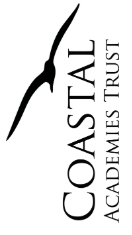- Home
- Curriculum
- Subject Information
- Science
Science
CURRICULUM INTENT STATEMENT
Science at King Ethelbert encourages students to understand and appreciate the world around them, from the smallest atoms to the largest stars. This is achieved by delivering a knowledge rich curriculum underpinned by scientific principles, promoting scientific values of curiosity, integrity and precision.
| Globally Diverse | Ambitious for the Future | Inquisitive Learners |
|---|---|---|
|
In science we aim to raise awareness about global issues such as:
We also aim to raise awareness around topics that hold moral and ethical dilemmas. Such as:
|
|
|

Science Learning Journey
Key Stage 3
In KS3, we have a question based curriculum that encourages students to develop their enquiry and all of our schemes of work are designed to have an overarching question for a sequence of learning. We utilise scientific investigations to give the students the skills to learn things themselves in the future. Students are encouraged to be curious, ask questions and find solutions to problems. Students are encouraged to read around the subject to develop their own interest. We cover various topics such as cell biology, chemical reactions and waves.
We raise awareness of different professions relating to science linking to current topics being taught. We run a weekly STEM club for students to develop their enquiry skills with investigations that would be beyond our curriculum. This is guided around their scientific interests and staff take the lead from them on which activities they would enjoy.
Students will begin to learn their place in the universe and the small level that we are existing within. Students can find this sense of self quite difficult to understand, such as when we talk about small building blocks like cells and our small place within the solar system or galaxy. We begin to talk about DNA and genetics which can stimulate difficult conversations given family contexts. Students are encouraged to go home and discuss these topics with their families to link learning to real life examples. Students are encouraged to share their stories and ask questions and voice concerns.
Key Stage 4
In key stage 4 the curriculum allows for a broad range of subjects so students get the opportunity to try different subjects. Where possible, through actively sharing our own experiences and through news articles, we link in recent developments to enhance students' knowledge of the wider impact of science. In lessons students have the opportunity to carry out and participate in practical investigations and demonstrations. In Science we have a spiral curriculum to help develop a deeper understanding by re-visiting concepts. This allows students to form links in their knowledge and embed learning into their long term memory.
We have links to STEM and other organisations for talks during lesson times. We have a focus on raising awareness of different professions relating to science, and the current topics being taught. We ensure they are aware of the next steps available to them through career related discussions and linking content to professions where appropriate. Students are taught to develop their oracy through discussion based learning, particularly involving ethical debates. Students are challenged to reflect and respond to feedback given.
We build on content covered at key stage 3 and continue to discuss contemporary ethical issues in Science. Topics are approached through a variety of ways including debate type activities. Students are encouraged to articulate their own opinion and opposing opinions based on evidence. Sometimes students can easily articulate their own opinion but really struggle to prepare an argument from a different point of view. Discussion of the uses of embryonic stem cells, screening or IVF are covered and students are taught to be emotionally developed enough to be able to have an understanding of the life choices people make and the reasons behind these.
Key Stage 5
During key stage 5 students study the BTEC L3 Extended Diploma in Applied Science. Being an applied qualification the units are of a holistic nature and not exclusively always to one discipline. Many BTEC units apply directly to different careers which also encourages further learning in different more specific subject areas. Through this qualification, students are able to choose a pathway which directly links to a vocational context they are most interested in. This qualification involves practical and theoretical elements which encourage students to ask the question "why?" and gives them skills needed in the future to find the answers to their questions themselves. Students have the opportunity to answer their own scientific question and work through the full process of collecting accurate evidence to support their hypothesis. Students are encouraged to consider moral and ethical implications which prepares students to see the bigger picture and write their reflective project.
We have links with the local universities and professional companies in scientific industries and have University visits and visits to local employers. The department also plays an active role in seeking relevant work experience placements for our key stage 5 students as part of their IBCP qualification. The varied nature of assessment in the course allows for students to develop effective reflection and evaluation skills, and are more applicable to specific science related careers. We are open to discussing our own University and workplace experiences which help them explore the options for their future.
The range of learning styles requires students to be adaptable and resilient. In some units, genetics is built on, and the understanding of ethics that has been developed in KS4 is stretched. Students are encouraged to attend universities and have talks from workplace leaders. This requires them to have a higher level of communication than they may already have. They can learn how the literacy and oracy used in lessons would then develop into a vocational setting. Students are supported through selecting a topic for their reflective project and Science staff help them develop their essay.
